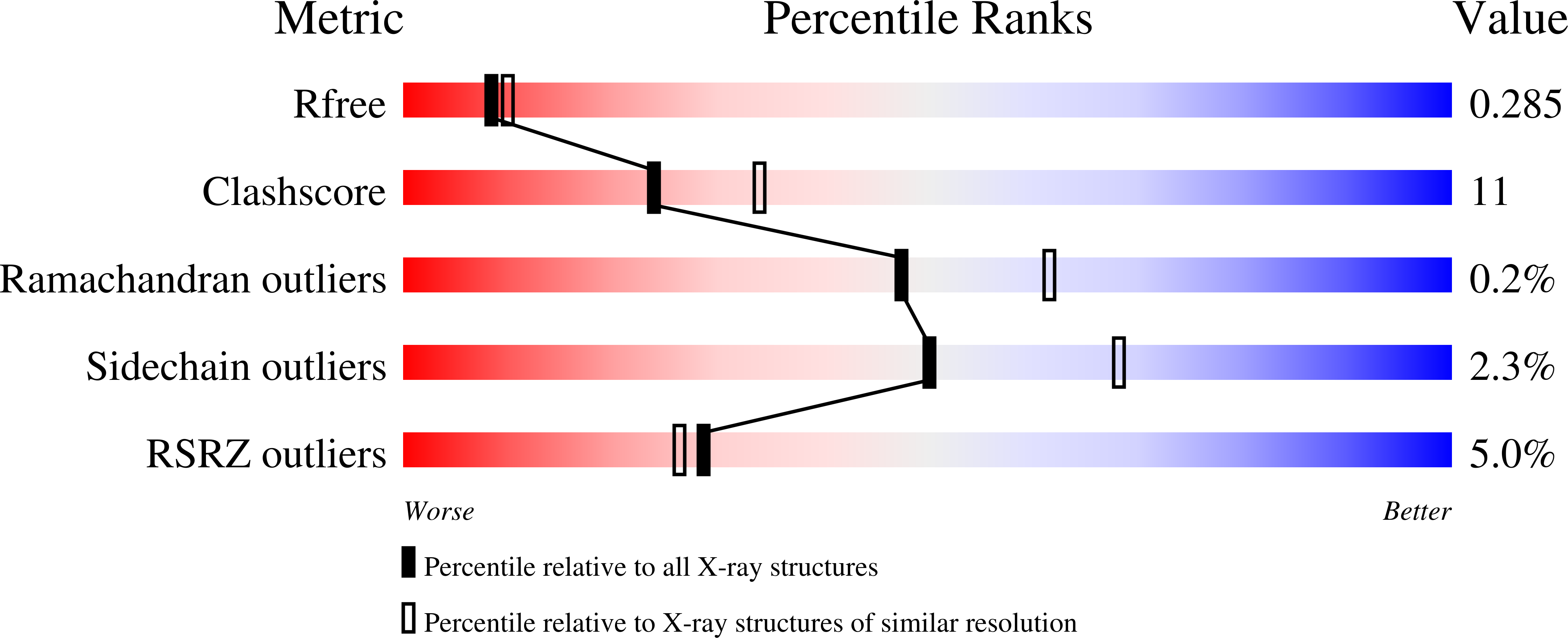
Deposition Date
2020-04-05
Release Date
2021-02-10
Last Version Date
2024-05-15
Entry Detail
Biological Source:
Source Organism(s):
Expression System(s):
Method Details:
Experimental Method:
Resolution:
2.42 Å
R-Value Free:
0.28
R-Value Work:
0.22
R-Value Observed:
0.23
Space Group:
P 1 21 1


